Humans
-
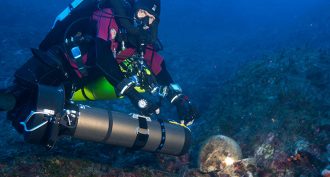 Archaeology
ArchaeologyDiving deep into history
New technologies help underwater archaeologists learn more about shipwrecks and other artifacts at the bottom of rivers, lakes and oceans.
-
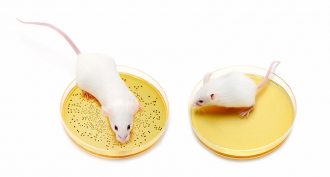 Microbes
MicrobesMissing gut bacteria linked to poor nutrition in children
The right mix of microbes in the gut could help prevent — or treat — malnutrition in children.
By Meghan Rosen -
 Health & Medicine
Health & MedicineTeens eating better but gaining weight
From 1999 through 2012, teens got heavier. But by downing less sugar and eating more healthy fats, their bodies also showed signs that these teens were somewhat healthier.
-
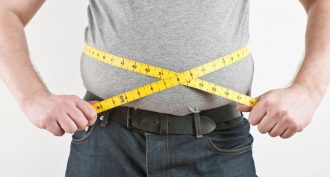 Health & Medicine
Health & MedicineExplainer: What is metabolic syndrome?
A “couch potato” lifestyle of too much sugary, fatty food and too little exercise leads to health problems. This is known as metabolic syndrome.
-
 Brain
BrainWhen smartphones go to school
Students who use smartphones and other mobile technology in class may well be driven to distraction. And that can hurt grades, studies show.
-
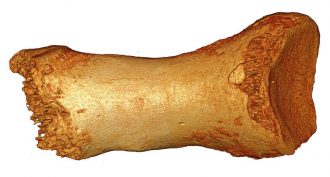 Fossils
FossilsNeandertal toe contains human DNA
DNA from a 50,000-year-old Neandertal woman’s toe bone shows humans left a mark on the ancient species — and much earlier than scientists had thought.
-
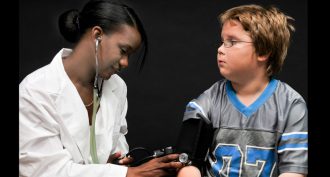 Health & Medicine
Health & MedicineBlood pressure rises as kids become overweight
Researchers find that children and teens who gain too much weight see a near-simultaneous increase in blood pressure.
-
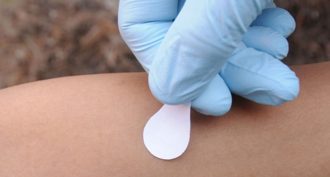 Tech
TechOuchless measles vaccine could save lives
A new ‘ouchless’ vaccine patch that uses dissolving microneedles could make efforts to vaccinate against measles more practical.
-
 Environment
EnvironmentTiny air pollutants are big, big killers
Air pollution now ranks as the world’s fourth leading cause of death. About 5.5 million deaths in 2013 trace to just one type, called particulates.
-
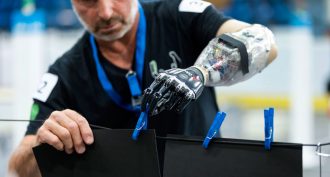 Tech
TechNew devices coming to assist the disabled
New technologies, including motorized prosthetics and stair-climbing wheelchairs, could someday help people overcome a range of disabilities.
By Sid Perkins -
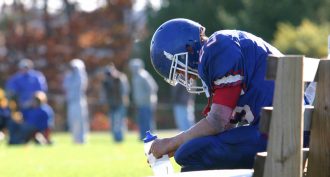 Health & Medicine
Health & MedicineConcussed brains need time to heal
Researchers working with mice found that allowing the body to rest after a concussion gave brain cells time to heal and reconnect with each other.
-
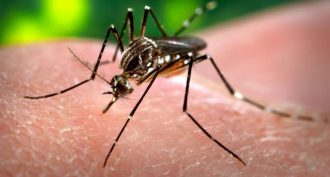 Health & Medicine
Health & MedicineScientists Say: Zika
Zika virus has burst into the news because it is linked with microcephaly — a condition where babies are born with small heads.